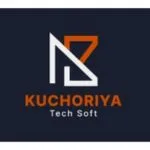
Top Tensorflow Development Companies
Welcome to our curated list of the top Tensorflow Development Companies! Finding the right partner for your Tensorflow project is crucial for success, and we’re here to assist you. Our comprehensive guide showcases the best firms in the industry, rated by user reviews. Whether you’re looking to build machine learning models, develop custom AI solutions, or implement Tensorflow in your software applications, our list highlights companies known for their expertise and excellence in Tensorflow development. With our curated selection, you can make informed decisions and choose the perfect partner to bring your Tensorflow project to life. Explore our list and embark on your AI journey today!
List of the Best Tensorflow Development Companies

-
Employees: 101 to 250
-
Min. Project amount: $10,000+
-
Country: Sahibzada Ajit Singh Nagar, India
Discountcodez
-
Employees: 51 to 100
-
Country: Bedfordshire, United Kingdom

SunTec India
-
Employees: 1000+
-
Min. Project amount: $1,000+
-
Country: New Delhi, India

Luvina Software JSC
-
Employees: 501 to 1000
-
Min. Project amount: $5,000+
-
Country: Cau Giay, Vietnam

MediaNV
-
Employees: 51 to 100
-
Min. Project amount: $1,000+
-
Country: Calgary, Canada

Nest Software Private Ltd
-
Employees: 11 to 50
-
Min. Project amount: $1,000+
-
Country: Amritsar, India

Globus Finanza
-
Employees: 11 to 50
-
Min. Project amount: $1,000+
-
Country: Delaware, United States

Kuchoriya TechSoft
-
Employees: 101-250
-
Min. Project amount: $1,000+
-
Country: Mississauga, Canada

Cognitive IT Solutions
-
Employees: 11 to 50
-
Min. Project amount: $1,000+
-
Country: Karachi, Pakistan

MaxelTracker
-
Employees: 51 to 200
-
Country: Canada
** Buyer's Guide **
- 1. What expertise should I look for in a Tensorflow development company?
- 2. How do Tensorflow development companies ensure scalability and performance in their projects?
- 3. What is the typical process for developing a Tensorflow project, from ideation to deployment?
- 4. How do Tensorflow development companies stay updated with the latest advancements in machine learning and AI technologies?
1.What expertise should I look for in a Tensorflow development company?
When evaluating Tensorflow development companies, look for expertise in machine learning, deep learning, neural networks, and data science. Additionally, consider their experience in implementing Tensorflow for various applications such as computer vision, natural language processing, and predictive analytics.
Here’s a breakdown of the key expertise to look for in a TensorFlow development company:
Technical Expertise:
Machine Learning (ML) and Deep Learning (DL) Foundations: The company should have a strong foundation in machine learning concepts, algorithms (supervised, unsupervised, reinforcement learning), and deep learning architectures (convolutional neural networks, recurrent neural networks, transformers).
TensorFlow Proficiency: In-depth knowledge of TensorFlow, including its core functionalities, libraries (TensorFlow Lite for mobile development, TensorFlow.js for web development), and best practices for model building, training, deployment, and optimization.
Data Science Skills: Expertise in data analysis, data preprocessing, feature engineering, and working with various data formats is crucial for preparing high-quality data for TensorFlow models.
Project-Specific Expertise:
Understanding Your Needs: The company should demonstrate a clear understanding of your project goals and how TensorFlow can be applied effectively to achieve your desired outcomes.
Experience in Relevant Domains: Look for a company with experience in applying TensorFlow to similar projects within your industry or for tasks relevant to your project’s goals (e.g., computer vision for image recognition, natural language processing for sentiment analysis, or recommender systems).
API and Framework Integration: Expertise in integrating TensorFlow with other relevant libraries and frameworks (e.g., NumPy, Pandas, scikit-learn, Keras) can streamline development and leverage complementary functionalities.
Additional Desirable Skills:
Cloud Expertise: Familiarity with cloud platforms like Google Cloud Platform (GCP) or Amazon Web Services (AWS) is beneficial as TensorFlow integrates well with these environments for scalable model deployment and training.
Software Development Best Practices: The company should follow software development best practices such as version control, unit testing, and code documentation to ensure code quality, maintainability, and efficient collaboration.
Evaluation Process:
Portfolio Review: Review the company’s portfolio to see examples of their TensorFlow projects and assess their alignment with your needs.
Technical Assessment: Consider conducting a technical assessment where the company demonstrates their TensorFlow skills through a relevant coding challenge.
Communication and Teamwork: Evaluate the company’s communication style, ability to understand your project vision, and their approach to collaboration throughout the development process.
By prioritizing these aspects, you can identify a TensorFlow development company with the expertise and experience necessary to transform your project idea into a successful reality.
2.How do Tensorflow development companies ensure scalability and performance in their projects?
Tensorflow development companies employ scalable architecture, efficient algorithms, and optimization techniques to ensure scalability and performance in their projects. They conduct rigorous testing and performance tuning to achieve optimal results, even with large datasets and complex models.
Scalability and performance are crucial for any TensorFlow project, especially when dealing with large datasets or complex models. Here are key strategies that TensorFlow development companies use to achieve optimal results:
Scalable Architecture:
Model Distribution and Parallelism: For computationally intensive tasks, the company can leverage TensorFlow’s distributed training capabilities. This involves distributing the training workload across multiple GPUs or machines (TPUs) to accelerate training and handle larger datasets.
Cloud-Based Training and Deployment: Utilizing cloud platforms like Google Cloud Platform (GCP) or Amazon Web Services (AWS) provides inherent scalability for training and deploying TensorFlow models. Cloud resources can be easily scaled up or down based on project requirements, ensuring cost-effectiveness and efficient resource allocation.
Efficient Algorithms and Model Design:
Algorithm Selection and Optimization: The company should have expertise in choosing the right algorithms for your project and applying optimization techniques like gradient clipping or learning rate scheduling, which can significantly improve training speed and model performance.
Model Pruning and Quantization: For deployment on resource-constrained devices (e.g., mobile phones), techniques like model pruning (removing unnecessary connections) or quantization (reducing the number of bits used to represent data) can be employed to reduce model size and improve efficiency without sacrificing accuracy.
Performance Optimization and Testing:
Profiling and Bottleneck Identification: Using profiling tools, the company can identify performance bottlenecks within the TensorFlow code. This allows for targeted optimization efforts to address areas that slow down training or inference.
Rigorous Testing and Performance Monitoring: Thorough testing across various hardware configurations and datasets helps ensure the model performs well in real-world scenarios. Additionally, performance monitoring tools track key metrics (training time, inference speed, resource utilization) to identify potential issues and opportunities for further optimization.
Additional Considerations:
Hardware Selection: The development company should have an understanding of different hardware platforms (CPUs, GPUs, TPUs) and their suitability for specific tasks. Choosing the right hardware can significantly boost training and inference performance.
Data Preprocessing and Augmentation: Efficient data preprocessing techniques like normalization or one-hot encoding can improve training speed and model convergence. Data augmentation (artificially creating new data points) can also enhance model robustness and generalization.
By implementing these strategies, TensorFlow development companies can create scalable and performant models that can handle large datasets, complex tasks, and real-world deployment scenarios effectively. This ensures your TensorFlow project achieves its full potential and delivers optimal results.
3.What is the typical process for developing a Tensorflow project, from ideation to deployment?
The development process for a Tensorflow project typically involves stages such as requirements gathering, data collection and preprocessing, model development and training, testing and validation, deployment, and post-deployment monitoring and optimization. Reputable companies follow best practices and agile methodologies to ensure success.
Developing a successful TensorFlow project involves a series of collaborative steps:
1. Ideation and Requirements Gathering:
Understanding Your Goals: The development company will work with you to understand your project’s objectives, desired outcomes, and the specific challenges you’re trying to address with TensorFlow.
Feasibility Assessment: They’ll assess the feasibility of using TensorFlow for your project and discuss alternative approaches if necessary. This might involve exploring different machine learning algorithms or considering the suitability of your data for the task.
Defining Success Metrics: Establishing clear success metrics upfront is crucial. This could involve setting targets for accuracy, performance, or other relevant benchmarks to measure the effectiveness of your TensorFlow model.
2. Data Collection and Preprocessing:
Data Acquisition: The company will help you identify and acquire the necessary data for training your TensorFlow model. This might involve collecting data from internal sources, public datasets, or web scraping techniques (with proper ethics and permissions).
Data Preprocessing: Raw data often requires cleaning, normalization, and feature engineering to prepare it for machine learning algorithms. The development company will handle these tasks to ensure the quality of your data and optimize model performance.
3. Model Development and Training:
Model Architecture Design: The company will leverage their expertise to design a suitable TensorFlow model architecture based on your project’s requirements. This could involve choosing appropriate algorithms (e.g., convolutional neural networks for image recognition) and defining the model structure.
Model Training: The development company will train the model using your prepared data. This stage involves iteratively adjusting the model’s parameters (hyperparameter tuning) to optimize performance and achieve the desired level of accuracy.
4. Testing and Validation:
Rigorous Testing: The trained model undergoes rigorous testing using unseen data (data not used during training) to assess itsgeneralizability and performance in real-world scenarios.
Validation Techniques: Techniques like cross-validation or k-fold validation can help ensure the model’s accuracy isn’t overstated and generalizes well to new data.
5. Deployment:
Choosing a Deployment Platform: The company will help you select a suitable platform for deploying your TensorFlow model. This might involve deploying to the cloud (e.g., GCP, AWS), running the model on-premise servers, or even deploying on mobile or edge devices (using TensorFlow Lite).
Serving Infrastructure: Depending on the deployment platform, the company will set up the necessary serving infrastructure to handle real-time predictions or model inference requests from users.
6. Post-Deployment Monitoring and Optimization:
Performance Monitoring: Once deployed, the model’s performance is continuously monitored. This involves tracking metrics like accuracy, latency (response time), and resource utilization.
Model Retraining and Optimization: Over time, new data or changing requirements might necessitate retraining the model. The development company can implement processes for model retraining and optimization to ensure its continued effectiveness.
Agile Methodology:
Reputable TensorFlow development companies often follow agile methodologies throughout the process. This involves breaking down the project into smaller phases, allowing for iterative development and continuous feedback. This approach ensures flexibility, adaptability to changing requirements, and a higher chance of project success.
Communication and Collaboration:
Open communication and collaboration between you and the development company are essential. Regular meetings, progress updates, and clear communication of expectations will ensure everyone is aligned throughout the development process.
By following these steps and best practices, you and your chosen TensorFlow development company can bring your project idea to life and create a successful machine learning solution.
4.How do Tensorflow development companies stay updated with the latest advancements in machine learning and AI technologies?
Top Tensorflow development companies prioritize continuous learning and professional development. They invest in training programs, attend industry conferences and workshops, participate in research communities, and collaborate with academia and industry experts to stay abreast of the latest trends and advancements in the field.
The field of machine learning and AI is constantly evolving, so staying updated is crucial for TensorFlow development companies. Here’s how they stay ahead of the curve:
Continuous Learning and Professional Development:
- Team Training and Workshops: Companies invest in training programs and workshops for their developers to equip them with the latest TensorFlow functionalities, libraries, and best practices.
- Online Courses and Resources: Developers actively seek out online courses, tutorials, and documentation offered by TensorFlow, machine learning platforms, and universities to stay current with advancements.
Industry Events and Conferences:
- Active Participation: Companies encourage their developers to attend industry conferences, workshops, and meetups related to TensorFlow, machine learning, and AI. These events provide opportunities to learn from experts, discover new tools and applications, and network with peers.
Research Communities and Collaboration:
- Open Source Contributions: Many companies contribute to open-source TensorFlow projects or research communities. This allows them to stay at the forefront of innovation and collaborate with other developers on cutting-edge advancements.
- Following Research Publications: Developers stay updated with the latest research by following academic publications, blogs, and articles from leading AI researchers and institutions.
Collaboration with Academia and Industry Experts:
- Partnerships with Universities: Some companies establish partnerships with universities or research institutions to gain access to cutting-edge research and collaborate on projects involving the latest AI and machine learning techniques.
- Industry Thought Leaders: Companies might follow the work of prominent AI and machine learning thought leaders to stay informed about emerging trends and potential applications for their clients.
By following these practices, TensorFlow development companies can ensure they have the knowledge and expertise to deliver innovative and effective machine learning solutions for their clients, propelling their projects and the entire field of AI forward.



